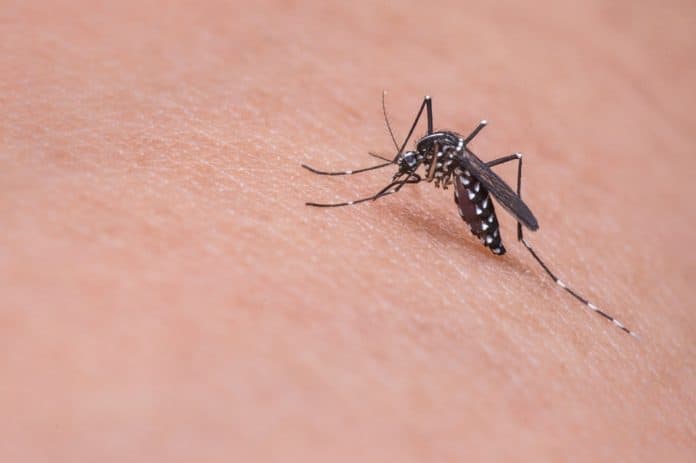
NEW JERSEY – The count is now at three confirmed cases of Eastern Equine Encephalitis, a rare virus transmitted to people and horses by the bite of an infected mosquito. Officials from the New Jersey Department of Health are encouraging residents to take steps to protect themselves from all mosquito-borne diseases.
Two new human cases of Eastern Equine Encephalitis were confirmed Sept. 19 in Union and Atlantic counties. The Department confirmed the first human case of Eastern Equine Encephalitis in August.
To date, Eastern Equine Encephalitis has been detected in 65 mosquito samples in 13 counties the state.
While most infected with Eastern Equine Encephalitis have no apparent illness, some can be very ill. Severe cases of Eastern Equine Encephalitis (involving encephalitis, an inflammation of the brain) begin with headache, high fever, chills, and vomiting 4 to 10 days after a mosquito bite. The illness may then progress to disorientation, seizures, or coma.
“While we are always concerned about more common mosquito-borne diseases, like West Nile virus, we also need to be vigilant for rare, but severe viruses, like Eastern Equine Encephalitis,” said Acting Health Commissioner Judith Persichilli. “Individuals who are concerned they may have Eastern Equine Encephalitis should contact their health care provider right away.”
Eastern Equine Encephalitis is one of the most severe mosquito-transmitted diseases in the U.S. About one-third of people with Eastern Equine Encephalitis die from the disease and there is significant brain damage in most survivors. While there is a vaccine for horses, there is no vaccine for people.
The best defense: reducing exposure to mosquitoes.
To prevent mosquito bites:
- Use repellent
- Wear protective clothing
- Install and repair screens
Mosquitoes can lay eggs even in small amounts of standing water. You and your family can take the following steps to limit mosquitoes on your property and keep them from laying eggs near you:
- Empty standing water from flower pots, buckets, barrels, and tires. Change the water in pet dishes and replace the water in bird baths weekly. Drill holes in tire swings so water drains out. Empty children’s wading pools and wheelbarrows and store on their side after use.
- Dispose of water-holding containers that have accumulated on your property, especially discarded tires
- Drill holes in the bottom and elevate recycling containers that are left outdoors
- Clean up any trash or leaves that may be around your home or in rain gutters at least once a year
- Aerate ornamental pools or stock them with fish
- Clean and chlorinate swimming pools that are not being used. Mosquitoes can even breed in the water that collects on pool covers
- Use landscaping to eliminate standing water that collects on your property
Residents who need assistance controlling mosquitoes around their home can call their county mosquito control agency or 888-666-5968.
For more information:
- NJDOH posts a weekly Vector-borne Disease Surveillance report at nj.gov/health/cd/statistics/arboviral-stats/
- NJDOH nj.gov/health/cd/topics/eee.shtml
- NJDEP: nj.gov/dep/mosquito
- NJDA: nj.gov/agriculture/divisions/ah/diseases/equine_encephalomyelitis.html






